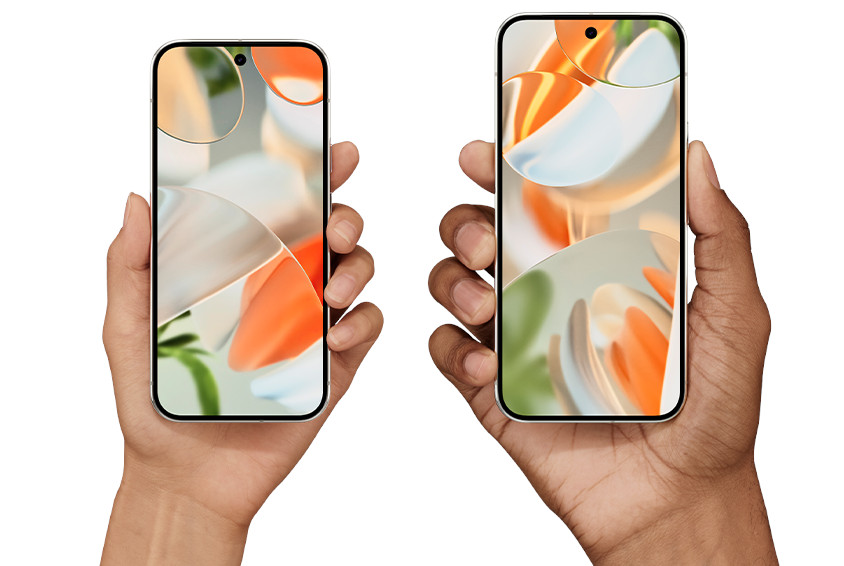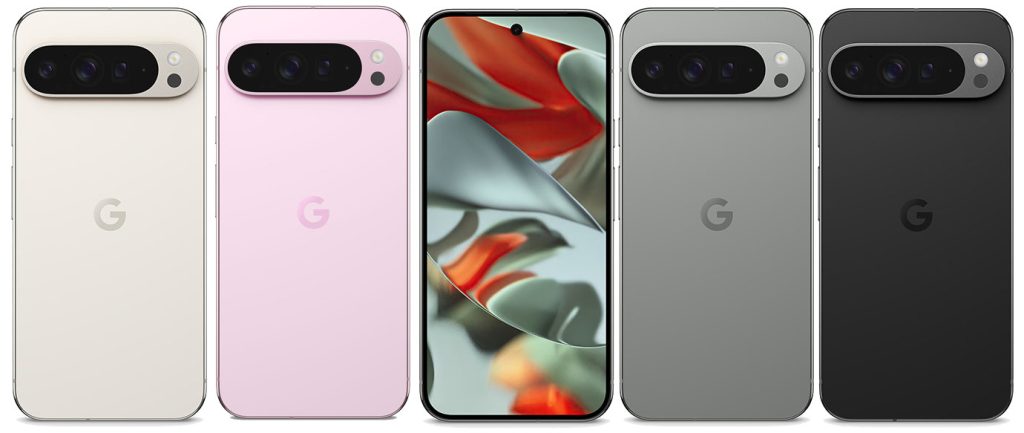Google is stepping up its game with a new lineup of smartphones, watches, and earbuds, positioning itself as a formidable competitor against Apple and Samsung. With a focus on integrating artificial intelligence (AI) into its devices, Google is highlighting these products as the ultimate way to experience its latest AI advancements.
These new releases mark a shift in design for the company, as it moves away from the curved design of previous Pixel phones.

Historically dominant in internet search, Google has been striving to establish a stronger foothold in the tech device market. The company has been working on integrating its hardware and software more seamlessly, a strategy that gained momentum earlier this year when Rick Osterloh, the head of devices, was also put in charge of Google’s Android platform.
Google is betting on this unified approach to transform its hardware business into a key driver of AI growth.
The new hardware lineup includes the Google Pixel 9, 9 Pro, 9 Pro XL, and an upscale foldable model named the 9 Pro Fold. Additionally, Google introduced the Pixel Watch 3, available in two sizes, and the Pixel Buds Pro 2.

These devices come with significant upgrades. The Pixel phones will feature an enhanced version of Google Assistant, now powered by the company’s Gemini generative AI, enabling more advanced responses, such as generating cooking recipes from a photo of ingredients. The Pro models offer a choice of sizes, including a 6.3-inch version, a 6.8-inch edition, and a foldable option with an 8-inch display when unfolded.
Google Pixel 9 Pricing
The standard Pixel 9 is priced at $799 and will be available on August 22. The Pro versions, priced at $999 and $1,099, boast improved cameras and premium materials. Google claims that the Pixel 9 phones are twice as durable as their predecessors. The foldable model, starting at $1,799, will be available on September 4 and features a new, more square design when opened.
Google Pixel Watch 3
The Pixel Watch 3 series includes an XL model with a 45-millimeter face and improved displays that offer a larger active area and can be twice as bright as previous versions. Google promises 24 hours of battery life with the always-on display feature. The watch will also allow users to interact with delivery personnel through the Nest Doorbell and control a connected Google TV. The watches are priced between $349 and $499, with the larger, cellular-connected version becoming available on September 10.
Since acquiring Fitbit in 2021, Google has been integrating Fitbit’s technology into its devices. As part of the recent announcements, Google is offering Peloton Interactive Inc. classes to users who subscribe to the premium version of Fitbit’s service.
The new Pixel Buds Pro 2 have also been refined, now 27% smaller and 24% lighter than before. The $229 earbuds feature a new A1 chip for enhanced audio processing and provide up to eight hours of battery life in noise-canceling mode.
Highlighted Specifications:
Pixel 9
– 50-megapixel wide-angle camera and 48-megapixel ultrawide camera on the back.
– Autofocus for the front camera.
– Screen brightness increased by 35%.
– 12GB of memory, up from 8GB in the Pixel 8.
– 20% longer battery life with a new 100-hour ultra-low-power mode.
Pixel 9 Pro and Pro XL
– 50-megapixel wide-angle, 48-megapixel 5X telephoto, and 48-megapixel ultrawide camera sensors.
– 42-megapixel front camera with a wider field of view and improved light sensitivity.
– Displays with 15% thinner borders than the previous Pro model.
– 16GB of memory, up from 12GB in the Pixel 8 Pro.
– Charges up to 70% of the battery in just 30 minutes.
Pixel 9 Pro Fold
– Larger screens: exterior display increased from 5.8 to 6.3 inches; unfolded screen expanded from 7.6 to 8 inches with 80% greater brightness.
– Lighter and boasting the largest unfolded screen among foldable phones.
– Similar camera setup to its predecessor, including a 48-megapixel wide-angle, 10.5-megapixel ultrawide, and 10.8-megapixel telephoto camera.
All the new Pixel phones feature Google’s in-house designed Tensor G4 chip, which the company claims is 20% faster at launching apps and loading webpages. New software features include an AI-powered weather app, enhancements for clearer call quality, and an app for managing screenshots and extracting important information.
